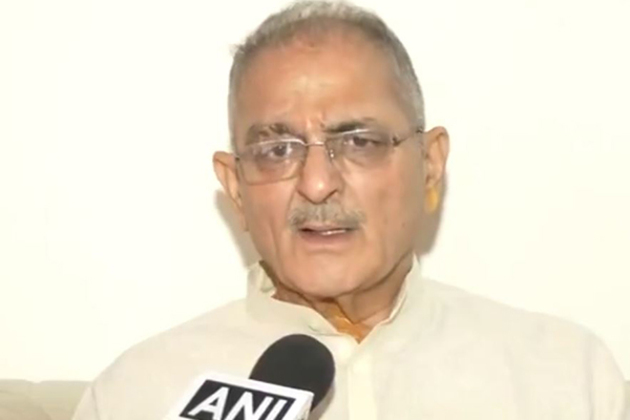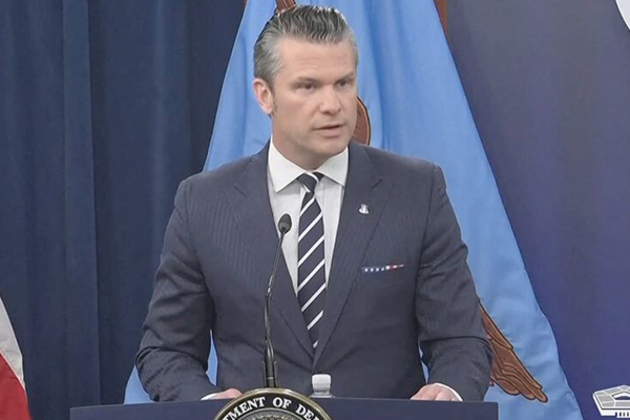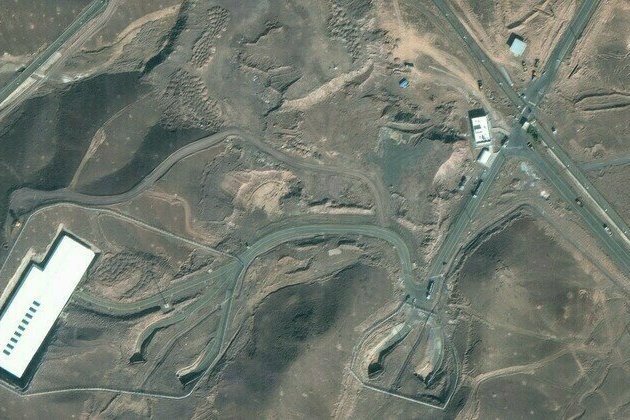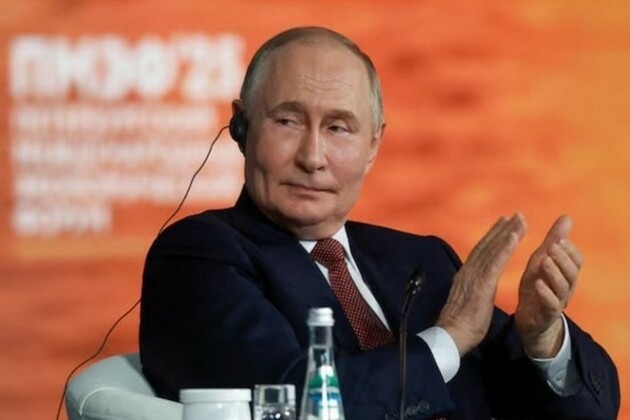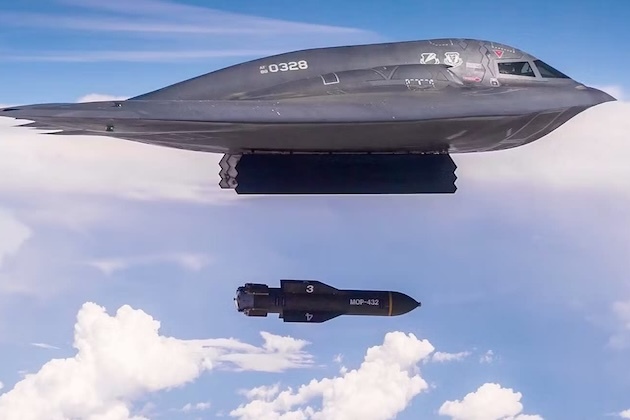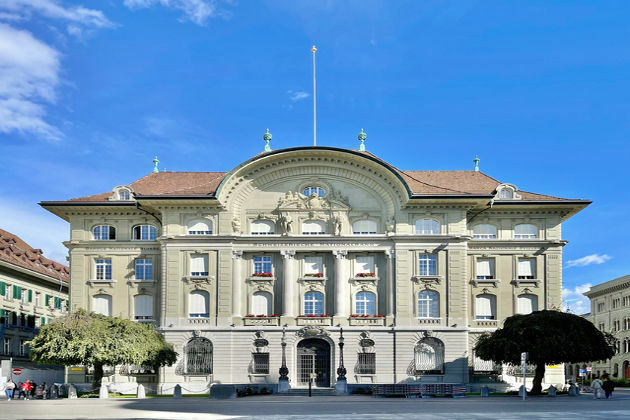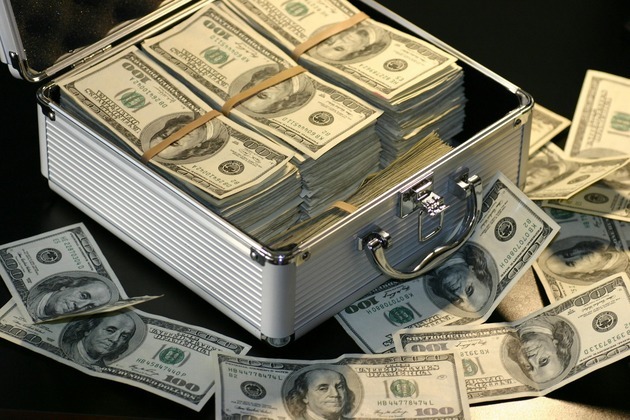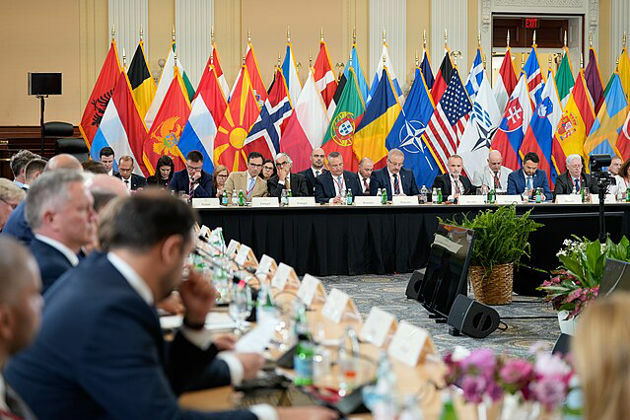U.S. tariffs disrupt German ports, global supply chains
Xinhua
22 Jun 2025, 19:45 GMT+10
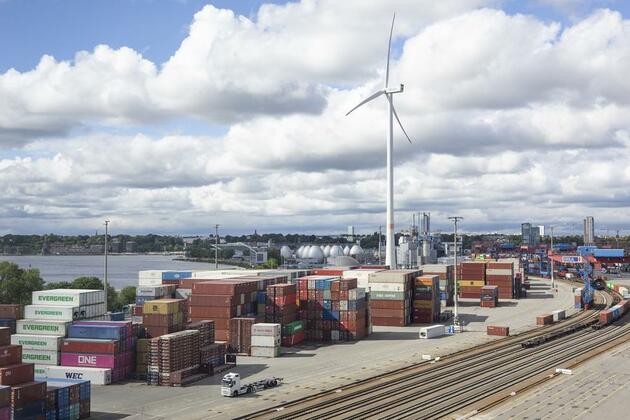
Hans-Joachim Schramm, senior lecturer at the Vienna University of Economics and Business, noted that U.S. tariff policies have significantly driven up transportation costs, particularly for goods shipped in smaller volumes. "These additional costs are inevitably passed down the supply chain," he said, "meaning that American consumers ultimately bear the burden of their own country's tariffs."
HAMBURG, Germany, June 22 (Xinhua) -- At a checkpoint in Germany's Hamburg industrial zone in early June, a long line of trucks crawled forward slowly, inching towards a bustling logistics hub.
Among the waiting drivers, Horm Wulff jumped down from his cab and slammed the door shut, clearly irritated. Standing beside his truck, he tilted his head to glance at the snaking line ahead and sighed. Rolling his shoulders to ease the tension, he muttered under his breath, "If this line doesn't start moving soon, I'll be late again."
Wulff has been in the freight industry for over 20 years, but he has grown increasingly anxious in recent months. "My colleagues and I are increasingly worried that U.S. tariffs will cause major backlogs at the ports, with ships unable to unload on time. That would disrupt my working hours and delay the entire logistics chain that follows," he said.
U.S. President Donald Trump unveiled his so-called global reciprocal tariffs on April 2, followed by a temporary 90-day pause.
Tariffs are a major source of uncertainty for the logistics industry and What was even more worrying was that no clear solution was in sight, Wulff said. "Assuming that we have got a done deal of reciprocal tariffs today, there will still be more tariffs in the pipeline tomorrow," he added.
German truck drivers have been forced to spend more time in congested lines as Hamburg and Bremen, the country's two major seaports, have been crowded with ships waiting for berth.
From late March till mid-May, the time lost for berth increased by 49 percent at Hamburg port and 77 percent at Bremen port, showed a report published by Drewry, a maritime consultancy in London. Meanwhile, Europe's largest port Rotterdam and the UK's Felixstowe have also reported longer waits.
Thorsten Dornia, general manager of Brelog Freight Forwarding and president of the Bremen Freight Forwarders' Association, attributes much of the congestion to the ongoing restructuring of global shipping alliances.
However, the U.S. trade policy has sparked an explosive increase of freights as U.S. importers rush to ship their goods into the United States before the pause expires. "These erratic U.S. policies are placing considerable strain on port infrastructure," Dornia said.
"Port delays are stretching transit time, disrupting inventory planning, and forcing shippers to carry additional stock," the Drewry report stated.
The bottlenecks at European ports are taking a toll on companies. Dornia pointed out that increased container dwell times, rerouting of shipments, and restricted delivery windows are leading to substantial additional costs for freight forwarders.
The wider impact of U.S. trade policies is already being felt across the international logistics industry. Peter Sand, chief analyst at freight analytics firm Xeneta, warned that U.S. tariff policy is pushing global trade into uncertain territory. "You can't make critical decisions about your supply chain when the rules of the game keep changing," Sand said.
"The trade conflict is a wake-up call for our economy," said Peter Klimek, a complexity researcher and director of the Supply Chain Intelligence Institute Austria. "It clearly illustrates how swiftly political decisions can lead to very real bottlenecks -- both at ports and across supply chains."
Hans-Joachim Schramm, senior lecturer at the Vienna University of Economics and Business, noted that U.S. tariff policies have significantly driven up transportation costs, particularly for goods shipped in smaller volumes. "These additional costs are inevitably passed down the supply chain," he said, "meaning that American consumers ultimately bear the burden of their own country's tariffs."
 Share
Share
 Tweet
Tweet
 Share
Share
 Flip
Flip
 Email
Email
Watch latest videos
Subscribe and Follow
Get a daily dose of Illinois Intelligencer news through our daily email, its complimentary and keeps you fully up to date with world and business news as well.
News RELEASES
Publish news of your business, community or sports group, personnel appointments, major event and more by submitting a news release to Illinois Intelligencer.
More InformationNorth America
SectionU.S. tariffs disrupt German ports, global supply chains
Hans-Joachim Schramm, senior lecturer at the Vienna University of Economics and Business, noted that U.S. tariff policies have significantly...
Crucial to uncover links of terrorists: BJP's Kavinder Gupta on arrests by NIA in Pahalgam attack
Jammu and Kashmir [India], June 22 (ANI): Following the arrest of two individuals by the National Investigation Agency (NIA) for allegedly...
US Defence Secretary confirms success of operation against Iran, says nuclear ambitions are 'obliterated'
Washington DC [US], June 22 (ANI): US Defence Secretary Pete Hegseth on Sunday confirmed the success of the operation launched by the...
Iran-Israel conflict: Akhilesh Yadav terms India's foreign policy "confusing"
Lucknow (Uttar Pradesh) [India], June 22 (ANI): Samajwadi Party chief Akhilesh Yadav has expressed concern over India's stand on the...
Iranian media assesses damage from US attack
President Donald Trump has claimed that Tehrans nuclear facilities were completely and totally obliterated Iran's Fordow nuclear...
US attack on Iran "flagrant" breach of international law: Russia
Moscow [Russia], June 22 (ANI): Russia on Sunday said that US attacks on Iran's nuclear sites are a 'flagrant' breach of international...
International
SectionTrump orders U.S. to join Netanyahu's war on Iran
WASHINGTON, DC - U.S. President Donald Trump how bowed to pro-Israel elements in his administration and Congress, announcing that the...
Swiss National Bank responds to strong franc and US trade doubts
ZURICH, Switzerland: The Swiss National Bank (SNB) lowered its key interest rate to zero percent on June 19 to respond to falling inflation,...
New U.S. guidelines may cut daily alcohol limit from advice
WASHINGTON, D.C.: The U.S. government is preparing to revise its influential dietary advice, with a significant shift: dropping the...
UBS: Over 379,000 Americans became millionaires last year
ZURICH, Switzerland: The U.S. saw an extraordinary rise in wealth last year, with more than 1,000 people crossing into millionaire...
The Hague faces lockdown for global leaders' meet
THE HAGUE, Netherlands: The city that prides itself on being a beacon of peace and justice—home to institutions like the International...
Drug shortages and layoffs spark health crisis in Argentina
BUENOS AIRES, Argentina: Since taking office in December 2023, Argentine President Javier Milei has implemented sweeping austerity...

